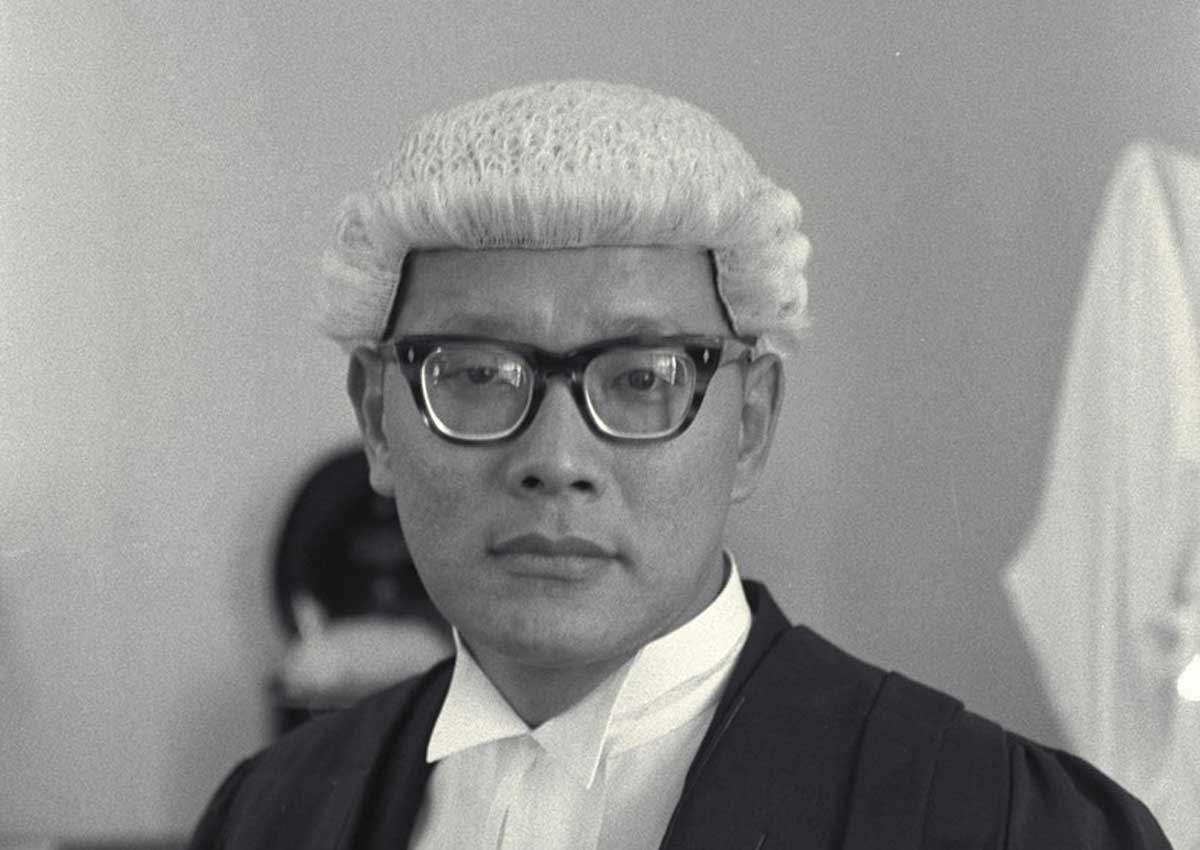He was the lawyer every young lawyer aspired to be.
Defence counsel
Ramesh Tiwary, 52, was only a law student when he first watched Mr Francis Seow in action.
"I watched him in court for a few times, as a lawyer doing criminal work. He was inspiring," he told The New Paper.
"He was on top of things and was never at a loss for words. He was always in control in the courtroom. I can say he was one of the few lawyers who truly inspired me," he said.
Mr Seow, a former Solicitor-General and opposition politician, died on Thursday in
Boston, Massachusetts. He was 87.
He had been living in exile there after refusing to return to face tax evasion charges in Singapore in the late 80s.
He later became a US citizen.
His death was announced by Singapore Democratic Party chief Chee Soon Juan on his Facebook page the same day.
It was later confirmed by Mr Seow's nephew Mark Looi, in a post on social networking platform LinkedIn.
Before becoming a politician, Mr Seow had an illustrious legal career.
He joined the Singapore Legal Service in 1956 and rose through the ranks to become the Solicitor-General in 1969.
Senior Judge Kan Ting Chiu had served under and worked with Mr Seow in the Attorney General's Chambers from 1970 to 1974.
Mr Seow was then the Solicitor-General and Justice Kan, a junior officer.
"He impressed me as being able and fair in his work and was popular with his subordinates," the High Court judge recalled.
"I assisted him in defending some habeas corpus applications (an order to bring a jailed person before a judge or court to find out if that
person should really be in jail) with the late T T Rajah on the other side. He (Mr Seow) was quite outstanding in his composure and his
eloquence in court," Justice Kan added.
Mr Seow left public service to start his own legal practice in 1972.
Despite being suspended from practice twice, Mr Seow was still elected into the Council of the Law Society of Singapore in 1976 and elected its President 10 years later.
Lawyer and former Nominated Member of Parliament Chandra Mohan Nair, 66, said Mr Seow had to be cajoled to assume the role.
FEARLESS
"The Law Society was then uneasy with some of the practices and perceived disrespect for lawyers, and was looking for a lawyer of standing
who could speak up bravely and fearlessly on its behalf. Many believed they found that in Francis," he said.
Mr Mohan said Mr Seow's speech during the opening of legal year displeased the then Chief Justice.
"His frank remarks and daring to speak openly and publicly over public policies were not welcomed by certain quarters and this eventually
led to the amendment of the Legal Profession Act, preventing the society from commenting on matters of pending legislation unless
referred to the society for its views," he said.
Many felt that this was stifling to professional lawyers who cared to give views.
In 1987, Mr Seow acted for 22 people who had been arrested and detained for being part of a Marxist conspiracy.
Mr Mohan said: "Then unfortunately, rightly or wrongly, he got into a bit of a problem and was himself detained under the Internal
Security Act (ISA).
The ISA detention drove him into politics.
Mr Seow stood in the 1988 General Election as a member of the Workers' Party team for Eunos Group Representation Constituency.
His team narrowly lost to the People's Action Party after securing 49.11 per cent of valid votes.
Later, while awaiting trial for alleged tax evasion, Mr Seow left for the US for medical treatment and never returned.
He was convicted in absentia.
Political watcher Eugene Tan felt that Mr Seow should have returned, despite his concerns about whether
he would have a fair trial on what he alleged were trumped-up charges.
"He should have boldly defended himself in open court. He was no doubt a competent lawyer and
would have been able to stoutly and robustly defend himself in court.
"There was the possibility of him winning in the court of public opinion and he was very much alive to that,"
said Prof Tan, who is also a law don at the Singapore Management University.
"Given that he wasn't willing to face trial, he had no choice but to exile himself in the US.
This did not do him any good and so his political career ended as abruptly as it began.
"Had he returned to face trial, he would have been able to resume his political activity," said Prof Tan.
Mr Seow is survived by two sons and two daughters.



